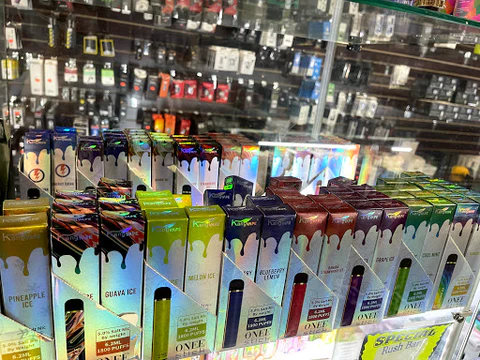Poetry workshops can be an incredible way to connect with others through the beauty of words. Whether you’re a seasoned poet or just someone who enjoys a good rhyme, these workshops can offer more than just a creative outlet. They provide a space for community building, self-expression, and even personal growth. If you’re looking to enhance your poetry further, consider a poetry editor for hire to refine your work and deepen your understanding of poetic techniques.
1. Overview
Engaging an audience in a poetry workshop is much more than just reciting verses or discussing meter and rhyme. It’s about creating an experience where participants feel seen, heard, and inspired. Poetry workshops have the power to foster deep connections between people through the shared act of writing and listening. But, how do you keep your audience engaged from start to finish?
2. Why Host a Poetry Workshop?
Poetry workshops serve as platforms for expression, where participants can explore their creativity in a supportive environment. Whether you’re offering it to a local community or running it online, these workshops can attract diverse groups of people looking to connect through language.
Hosting a workshop is also a great way to share your passion for poetry, and it may even help you develop your own craft as you exchange ideas with others.
3. Understanding Your Audience
One of the most important aspects of any workshop is knowing your audience. Are they seasoned poets or newcomers? What kinds of topics or themes are they interested in? Engaging your audience starts with understanding their needs and interests. Tailor your content to match their level of experience and ensure that everyone, no matter their skill level, feels welcome.
4. Creating a Comfortable Space
Creating a safe and comfortable space is key to a successful poetry workshop. If participants don’t feel comfortable sharing their work, they won’t engage. Consider starting with icebreakers or light exercises that allow people to ease into sharing without feeling vulnerable.
Remember, a poetry workshop is not just about the words on the page, but the emotions behind them. When people feel supported, they are more likely to open up and participate fully.
5. Choosing Relevant Themes
Picking themes that resonate with your audience is crucial to keeping them engaged. Think about current events, emotions, or shared experiences that everyone in the room can relate to. When the theme is something personal or universal, participants are more likely to be inspired and motivated to contribute.
For instance, themes like “change,” “identity,” or “hope” can evoke strong emotional responses and create meaningful discussions.
6. Incorporating Interactive Elements
A good poetry workshop goes beyond just writing. Incorporating interactive elements such as group discussions, peer reviews, or even writing games can make the experience more dynamic. Consider breaking participants into small groups to collaborate on a poem or critique each other’s work.
These activities not only engage participants but also help them learn from each other, which can significantly enhance their writing skills.
7. Sharing and Feedback
One of the most rewarding aspects of a poetry workshop is the opportunity to share work and receive feedback. However, it’s important to establish guidelines for giving constructive and respectful feedback. Encourage participants to focus on what they appreciated about the poem before offering suggestions for improvement.
Think of the feedback process as a conversation rather than a critique. This will help participants feel encouraged and motivated to continue writing.
8. The Role of a Poetry Editor for Hire
Hiring a poetry editor can be a valuable addition to your workshop, especially if you’re running one for more advanced writers. A poetry editor for hire can help participants refine their work, offering professional insights into structure, style, and polish. Their expertise can be a game-changer for those looking to take their poetry to the next level.
A poetry editor’s role isn’t just about correcting mistakes; it’s about elevating a poet’s work to its fullest potential, making their voice clearer and their message stronger.
9. Using Prompts to Inspire Creativity
Writing prompts are an effective tool to get the creative juices flowing, especially for participants who may feel stuck. Offer a range of prompts that encourage different styles of writing—some may be abstract, while others could be more concrete.
For example, ask participants to write about a memory using all five senses or create a poem that personifies a feeling like “joy” or “loneliness.”
10. The Importance of Inclusivity
Inclusivity is vital in any creative space. Make sure your poetry workshop is welcoming to people of all backgrounds, experiences, and skill levels. Be mindful of the language you use, and ensure that your prompts and discussions are accessible to everyone.
Inclusivity not only enriches the experience for everyone involved but also fosters a deeper sense of community among participants.
11. Offering Resources Beyond the Workshop
Engagement shouldn’t end when the workshop is over. Providing resources such as reading lists, writing prompts, or follow-up critique sessions can keep the momentum going. Consider creating an online space where participants can continue to share their work and receive feedback even after the workshop ends.
These additional resources help foster long-term growth and keep participants engaged with poetry long after the workshop is finished.
12. Conclusion
Engaging your audience in a poetry workshop involves more than just reading and writing. It’s about creating an inclusive, supportive space where participants can express themselves freely, share ideas, and grow as writers. Whether you’re a beginner or a seasoned poet, workshops provide a unique opportunity to connect with others through the powerful art of poetry.
















Leave a Reply